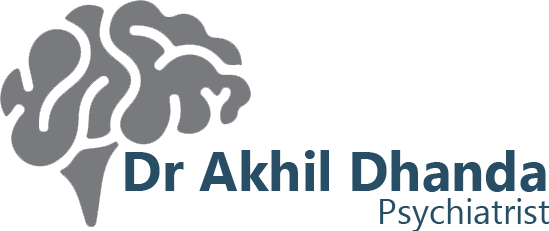Research And Advances In Understanding OCD
The mental illness known as obsessive-compulsive disorder (OCD) is typified by intrusive thoughts, or obsessions, repetitive actions or routines, or compulsions. OCD affects millions of people worldwide, significantly impacting their daily lives, relationships, and overall well-being. Over the years, extensive research has been conducted to better understand the underlying mechanisms, causes, and effective treatment approaches for OCD. In this article, we delve into the latest advancements in OCD research, shedding light on the complexities of this disorder and offering hope for improved management and outcomes.
Neurobiology and Genetics
Recent studies have made significant strides in unraveling the neurobiological basis of OCD. Advances in neuroimaging techniques, such as functional magnetic resonance imaging (fMRI) and positron emission tomography (PET), have provided insights into the brain regions involved in OCD pathophysiology. Researchers have identified abnormalities in the cortico-striato-thalamo-cortical (CSTC) circuitry, which plays a crucial role in regulating cognitive and emotional processes. Additionally, genetic studies have highlighted the hereditary component of OCD, with specific gene variants implicated in its development. Understanding the genetic and neurobiological underpinnings of OCD holds promise for the development of targeted therapies and personalized treatment approaches.
Immune System Dysregulation
Emerging evidence suggests a potential link between immune system dysregulation and OCD. Studies have demonstrated alterations in immune markers, inflammatory cytokines, and autoimmune processes in individuals with OCD. This novel area of research opens avenues for exploring the role of inflammation and immune dysfunction in OCD pathogenesis. Furthermore, immune-modulating treatments, such as immunomodulatory drugs or interventions targeting the gut microbiota, are being investigated as potential adjunctive therapies for OCD management.
Neuroplasticity and Learning Mechanisms
The brain’s remarkable ability to adapt and reorganize, known as neuroplasticity, has garnered interest in the context of OCD. Research suggests that maladaptive learning mechanisms and alterations in synaptic plasticity may contribute to the persistence of OCD symptoms. By elucidating the neural mechanisms underlying compulsive behaviors and cognitive inflexibility, scientists aim to develop interventions that promote adaptive neuroplasticity and facilitate symptom remission in OCD.
Transcranial Magnetic Stimulation (TMS) and Deep Brain Stimulation (DBS)
Non-invasive brain stimulation techniques, such as transcranial magnetic stimulation (TMS) and deep brain stimulation (DBS), have emerged as promising therapeutic modalities for treatment-resistant OCD. TMS delivers magnetic pulses to targeted brain regions implicated in OCD, modulating neural activity and potentially alleviating symptoms. Similarly, DBS involves the surgical implantation of electrodes in specific brain areas to modulate neural circuits associated with OCD. Clinical trials and neuroimaging studies have demonstrated the efficacy and safety of these interventions, offering new hope for individuals with severe and refractory OCD.
Psychedelic-Assisted Therapy
The resurgence of interest in psychedelic substances, such as psilocybin and MDMA, has led to explorations of their therapeutic potential in treating mental health disorders, including OCD. Preliminary studies suggest that psychedelic-assisted therapy may induce profound shifts in consciousness, facilitating emotional processing, and promoting insight and perspective changes. By modulating serotonin receptors and promoting neuroplasticity, psychedelics hold promise as adjunctive treatments for OCD, particularly in conjunction with psychotherapy.
Digital Therapeutics and Telemedicine
Advancements in technology have paved the way for innovative approaches to OCD management, including digital therapeutics and telemedicine. Mobile applications, virtual reality platforms, and online cognitive-behavioral therapy (CBT) programs offer accessible and convenient tools for symptom tracking, psychoeducation, and self-management strategies. Telemedicine platforms enable individuals to connect with mental health professionals remotely, overcoming barriers to care and improving treatment accessibility, especially in underserved communities.
Intersectionality and Cultural Considerations
Recognizing the diverse experiences and cultural contexts of OCD is essential for delivering culturally competent and inclusive care. Intersectional approaches that consider the intersecting influences of race, ethnicity, gender identity, sexual orientation, and socioeconomic status on OCD presentation and treatment outcomes are gaining traction. Culturally adapted interventions and community-based support networks play a vital role in addressing the unique needs and barriers faced by marginalized populations affected by OCD.
In conclusion, ongoing research efforts are reshaping our understanding of OCD and paving the way for innovative approaches to diagnosis, treatment, and support. From unraveling the neurobiological basis of OCD to exploring novel therapeutic modalities and leveraging technology for enhanced care delivery, the landscape of OCD research is dynamic and multifaceted. By fostering collaboration among researchers, clinicians, advocates, and individuals with lived experience, we can continue to advance knowledge, reduce stigma, and improve the lives of those affected by OCD.







